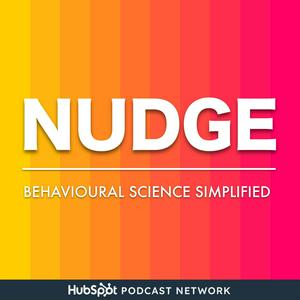Will tips from a 102-year-old marketing book work in 2025?
Back in 1923, Claude Hopkins wrote the definitive book on advertising. David Ogilvy said the book “changed his life,” and over eight million copies of the book have been sold. But are the 102-year-old tips still accurate today? In this episode of Nudge, I find out.
You’ll learn:
Why the phrase “Food Shot Through Guns” helped sell more cereal.
How a sewing machine manufacturer increased his sales 9-fold.
The four predictions Hopkins got wrong.
And evidence-backed studies that reveal what he got right.
----
Download the Reading List: https://nudge.kit.com/readinglist
Sign up to my newsletter: https://www.nudgepodcast.com/mailing-list
Connect on LinkedIn: https://www.linkedin.com/in/phill-agnew-22213187/
Watch Nudge on YouTube: https://www.youtube.com/@nudgepodcast/
----
Sources:
BBC. (2016). Corsodyl: How an unnerving ad campaign works. BBC News.
Behavioural Insights Team. (2013). Applying behavioural insights to charitable giving. Government & Society.
Berger, J., Moe, W. W., & Schweidel, D. A. (2023). What holds attention? Linguistic drivers of engagement. Journal of Marketing, 87(5). https://doi.org/10.1177/00222429231152880
Berger, J., Sorensen, A. T., & Rasmussen, S. J. (2010). Positive effects of negative publicity: When negative reviews increase sales. Marketing Science, 29(5). https://doi.org/10.1287/mksc.1090.0557
Harris, K. [Kamala Harris]. (2024, March 1). Enemy Within | Harris-Walz 2024 [Video]. YouTube. https://www.youtube.com/watch?v=YQnugO8SEx0
Hopkins, C. (1923). Scientific advertising. Printers’ Ink Publishing Company.
Hüttel, B. A., Schumann, J. H., & Wagner, C. J. (2018). How consumers assess free e-services: The role of benefit-inflation and cost-deflation effects. Journal Name, 21(3).
Kahneman, D. (2011). Thinking, fast and slow. Farrar, Straus and Giroux.
Monnier, A., & Thomas, M. (2022). Experiential and analytical price evaluations: How experiential product description affects prices. Journal of Consumer Research, forthcoming. https://doi.org/10.2139/ssrn.4046802
Pick, D. F., Sweeney, J., & Clay, J. A. (1991). Creative advertising and the von Restorff effect. Psychological Reports, 69(3, Pt 1), 923–926. https://doi.org/10.2466/PR0.69.7.923-926
Rogers, T., & Lasky-Fink, J. (2023). Writing for busy readers: Communicate more effectively in the real world.
Schindler, R. M., & Yalch, R. (2006). It seems factual, but is it? Effects of using sharp versus round numbers in advertising claims. Advances in Consumer Research, 33, 586-590. Association for Consumer Research.
Sutherland, S. (1992). Irrationality. Pinter Publishers.
Trump, D. J. [Donald J Trump]. (2023, September 12). Wolves [Video]. YouTube. https://youtu.be/pxz9sxUqgsE
Weiner, M. (Writer), & Draper, M. (Director). (2008). Mad Men (Season 1, Episode 11) [TV series episode]. In M. Weiner (Producer), Mad Men. Lions Gate Television.
